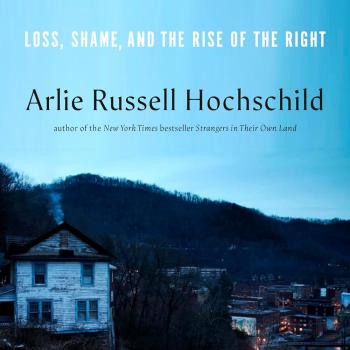Check out Freya India’s “The Need for Adults” if you want to read a powerful critique of modern parenting and much of the West’s adult culture. Her central argument is that modern adults have largely abandoned their roles as moral authorities. This claim raises fundamental questions about responsibility, identity, and cultural values.
Accordingly, this post takes a close look at key parts of India’s argument. In the process, I’ll explore themes of honor, shame, and the moral vacuum that sucks life from modern society.
The Shift in Protective Priorities
India begins with a keen observation: while today’s parents are preoccupied with shielding their children from physical harm, they fail to provide moral guidance and character training. This shift—prioritizing external safety over internal virtue—marks a troubling departure from traditional parenting.
Historically, parenting encompassed more than just avoiding accidents; it included preparing children for life’s challenges by instilling values and moral clarity. From an honor-shame perspective, such failure offers a framework for understanding one’s place in the community is deeply damaging.
Cultures grounded in honor have long emphasized the importance of transmitting communal expectations and ethical codes. When these are absent, children are left to navigate a complex world without a compass, often at great personal cost. India’s essay vividly underscores the consequences of this moral vacuum, where children grow up untethered and adrift.
The Collapse of Adulthood as an Ideal
India also laments the devaluation of adulthood. Today, adults often conflate maturity and adolescence. They prioritize personal fulfillment over making sacrifices and taking responsibility. This sweeping rejection of adulthood has serious consequences.
In past decades (and centuries), being an adult meant embracing responsibility and serving others. Selfishness brought fulfillment. Sacrifice is now dismissed as an unnecessary burden instead of a sign of maturity or a source of honor.
Insightfully, India underscores the point that rejecting these values undermines both the dignity of adulthood and the example it sets for younger people. This cultural shift leaves children to scratch their heads, wondering why adulthood matters, robbing them of a clear vision for life.
Authority, Admiration, and the Loss of Protection
India’s critique of authority offers one of her most important insights. Modern culture’s distrust of authority leads many adults to forsake their roles as guides. Authority is now frequently equated with oppression, and as a result, admiration and respect for adult figures have eroded.
Why is this retreat from authority especially harmful to young women? As India states, both fathers and mothers often hesitate to set protective boundaries, leaving daughters vulnerable to societal pressures and unhealthy relationships. From an honor-shame perspective, this withdrawal is a betrayal of the protective roles traditionally assumed by parents. Fathers, in particular, have historically been seen as protectors who embody respect and dignity.
Without this guidance, many young women lack the tools to navigate life’s challenges. India’s call for parents to reengage with their protective instincts is a necessary reminder of the critical role adults play in shaping a child’s moral and emotional upbringing.
The Vacuum of Conviction and Cultural Nihilism
India’s essay identifies another major issue: the lack of a coherent moral framework to pass on to the next generation. A culture obsessed with relativism and personal freedom has be gutted, now lacking the convictions that once provided structure and meaning. This void fosters nihilism. Young people lack the tools to rebel in meaningful ways or build lives with lasting value.
Honor cultures, by contrast, root individuals in a network of obligations and relationships that give life purpose. India’s critique underscores the consequences of abandoning these shared beliefs, which leave both adults and children disconnected and anxious, adrift in a sea of subjectivity.
A Call to Restore Dignity and Direction
India gives readers a call to action: adults must reclaim their dignity, authority, and sense of purpose. True authority, she says, is not about control; it’s about demonstrating faith in the next generation. Adults must stand for something, set clear boundaries, and embody the virtues they hope to instill.
This call aligns closely with the themes of honor and shame. Adults who model sacrifice, responsibility, and conviction inspire respect and admiration. Restoring these ideals requires not only personal transformation but also a cultural shift that prioritizes children’s well-being over the pursuit of personal autonomy.
Implications and the Way Forward
India’s article is a flashing red light warning an entire society lost in a self-imposed wilderness. How can we restore a sense of purpose and responsibility to adulthood— not just as individuals but as a community? Shared values and cultural renewal are essential components of any flourishing society.
Practically, India’s argument calls parents and adults to four things:
- Reprioritize Moral Guidance: Cultivate a child’s character with the same urgency as protecting their physical safety.
- Embrace Adulthood as an Honor: Recognize that responsibility and sacrifice are privileges, not burdens.
- Model Conviction and Stability: Offer young people a vision of life worth seeking.
- Restore Authority Through Love and Faith: Authority should inspire admiration, not fear, by being rooted in genuine concern and care.
The greatest gift we can offer the next generation is not unbounded freedom but a framework for living—a clear sense of identity, purpose, and values. By recovering these truths, we can give young people the protection and guidance they need.
















